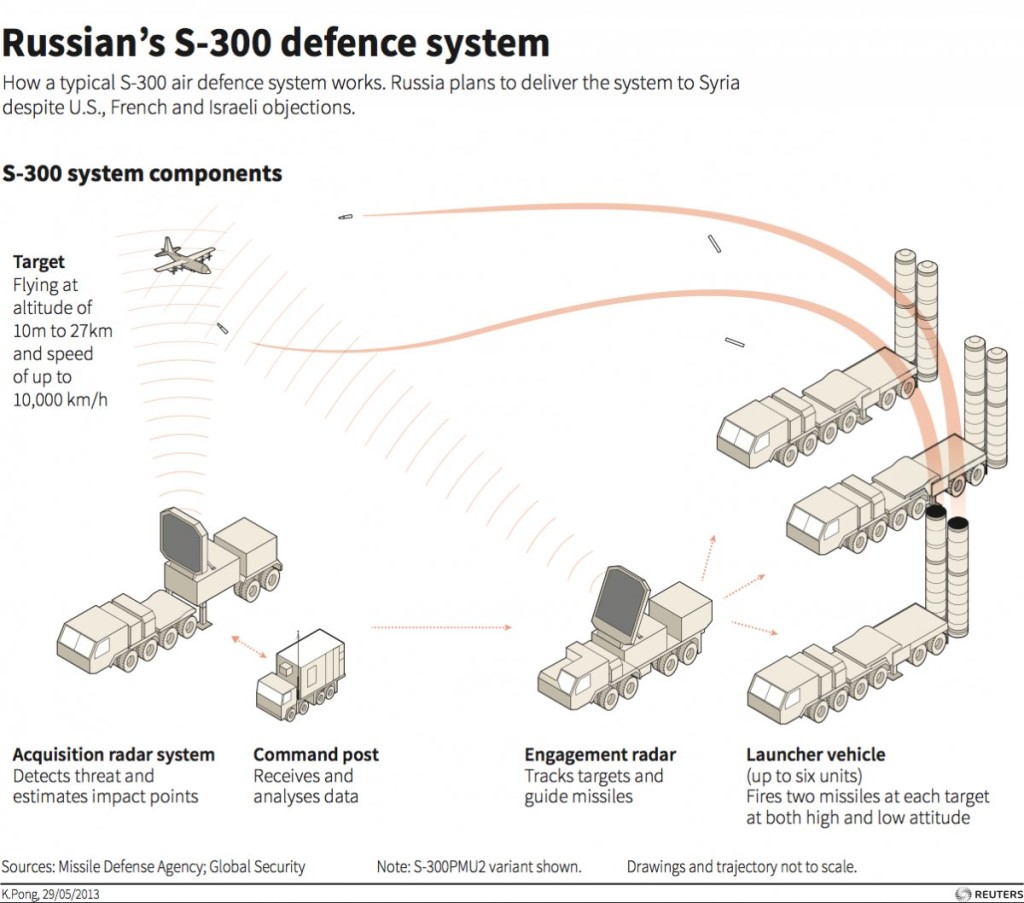
Iran signed an $800 million contract in 2007 for five of the giant air defense systems, meant to protect large industrial areas, like the Natanz nuclear enrichment complex.
In 2010, however, then-President Dmitry Medvedev signed an order killing the deal. He said Russia had no choice because the arms embargo voted by the UN Security Council prohibited the sale.
However, when that resolution was approved, a US official told reporters Moscow had fought hard to have the resolution worded very carefully so as to exclude the S-300 from the arms embargo.
On Monday, when Foreign Minister Sergey Lavrov was asked how the sale could proceed given that the UN resolution is still in effect, he said the ban on the S-300 sale was a voluntary Russian decision and had nothing to do with the resolution.
The sale had been canceled “in a spirit of goodwill in order to encourage progress in [the nuclear] talks,” Lavrov said. “We are convinced that at this stage there is no longer need for such an embargo.”
Leonid Ivashov, a retired general who heads the Moscow-based Center for Geo-Political Analysis, said the Putin decision was actually part of a race to nail down post-sanctions contracts with Iran.
“If we now delay and leave Iran waiting, then tomorrow, when sanctions are fully lifted, Washington and its allies will get Iran’s large market,” he told the RIA news agency.
It wasn’t announced when the S-300s would be shipped to Iran. A few months ago, Russia said the exact model of the S-300 that Iran had ordered was no longer being produced and offered Iran a version of another anti-aircraft missile system, the Antey-2500.
